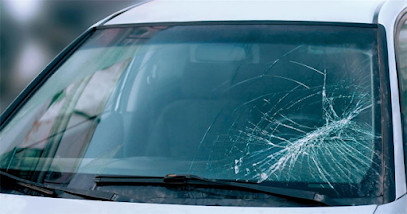"Hands On" Owner / Operator Paul Troutner talks about happy employees and happy customers. http://corbysvacaville.com/
Tuesday, January 30, 2024
Corby's Collision - "Hands On" Owner with Happy Employees
"Hands On" Owner / Operator Paul Troutner talks about happy employees and happy customers. http://corbysvacaville.com/
Saturday, January 27, 2024
Routine Vehicle Safety Recall Check
Wednesday, January 24, 2024
SAFE STEPS Road Safety: Pedestrians
Sunday, January 21, 2024
AAA Distracted Driving PSA
Thursday, January 18, 2024
The History of Automotive Repairs - Why We Need Trained Technicians in the Collision Repair Industry
* They don't make them like they used to.
The First Cars
* The first motor cars were nothing more than a buggy and engine (Generally repaired by blacksmiths and carpenters. These cars were very expensive, which only the wealthy could afford)
* Model T was the first car mass production on an assembly line in 1908 (Ford's Vision was to produce an affordable car the average person could purchase)
* Model T's came in black only to keep the costs down. (The price came down once the assembly line was streamlined, but in 1908, the cost for a Model T started at $825. By 1913 the cost of the car reduced to $550)
Cars in the 1960s
Cars were made the same basic way up through the 60s
* Body Over Frame
* Rear Wheel Drive (Same concept, but the cars were very big, bulky, and heavy)
Except people in the 60s wanted SPEED! They achieved this with Big Block Motors, which created a lot of Horsepower. (The Birth of Hotrods, Rat Fink, Flames, and Pin Striping).
Cars in the 1970s
* The government place strict fuel economy and emissions control laws
* Customers demanded cars with increased fuel economy
* New laws and customer demands started the automotive explosion of engineering ideas and changes in the automotive industry
Changes to comply with Demands and Laws
* Smaller bodied cars and smaller engines
* Aerodynamics (Increase Fuel Mileage)
* Lighter cars by using different materials and designs
* More work-hardened areas created during formation of panel (Body Lines)
* Safety
Construction of Interstate Highways + Higher Speed Limits + More High Performance Cars = Accidents and More
Deaths from Auto Accidents
Federal Laws were passed to regulate safety. These laws included:
* Installation of seatbelts
* Safety glass windshields
* Head restraints
* In 1979, the first driver side airbag was introduced
* Airbags are mandatory in motor cars produced after 1990
* Unibody Torque Boxes: Allow controlled twisting and crushing
* Crush Zones: Made to collapse during collision (To act as an absorber, absorbing the impact)
Modern Day Cars
* Carbon Fiber Parts
* Aluminum Parts
* More Plastic Parts
* High Strength Steel
* Boron Steel
* Unibody Construction
* Space Frame Construction
* Computer
* Hybrid Cars
Now they even have cars that will tell you when you're lost, where to turn, Parallel Park for you.
Conclusion
While the modern day cars appear to be made cheap and unsafe, they are actually designed to crush or collapse, while transferring the energy around the stronger passenger compartment to protect the passengers from injury.
There is considerably more damage to modern day cars during a collision than the older vehicles, which gives the perception that "they don't make them like they used to". However, in reality the cars are taking the impact instead of the passengers.
The lesson was designed to give you a little history, but to also emphasize that just a hammer, dolly and a few wrenches are not going to repair today's cars. We need highly trained collision repair and automotive technicians to repair today's vehicles.
Article Source: http://EzineArticles.com/4210770
Monday, January 15, 2024
AAA Pedestrian Safety PSA
Friday, January 12, 2024
Cognitive Distraction
Tuesday, January 9, 2024
Driving Defensively for CDL Drivers
Saturday, January 6, 2024
The Importance of a Properly Installed Windshield
The vital role a windscreen plays in the safety of your vehicle cannot be overstated. Every time we turn the ignition we place our trust in our vehicle. Our safety and that of our passengers, other motorists and pedestrians is reliant on our vehicle’s components meeting all necessary safety standards.
Windscreens form a key part of your vehicle's safety restraint system (SRS).
SRS has been developed to keep the driver and passengers inside the vehicle during an accident. Provisions for seat belts and air bags are found in the SRS, and each component within the SRS must be functioning for the vehicle to be deemed safe.
Occupant ejection and head injuries account for a large proportion of fatalities in road accidents. Maintaining the integrity of the windscreen is integral to the prevention of such occurrences as the windscreen helps keep passengers inside the car while supporting the roof and the airbags when activated.
For optimal safety, always repair a windscreen as soon as the damage occurs. Repair can save the windscreen and in doing so maintain its original factory seal, which will help reduce the risk of air and water leakage.
Hiring a trained specialist to fix your windscreen is paramount, which is why it pays to use an AGA member who understands the standards, has access to the latest technical advice and abides by a code of practice. Click here for a list of auto glass technicians because
when it comes to safety, there should be no compromise.
A word on wiper blades…
Who has waited for the next rainy day before remembering their wiper blades need changing? Even though maintaining vision in inclement weather is critical, for some reason wipers aren’t seen as a priority. The AGA recommends wipers are changed regularly, at least twice a year.
Source: https://www.autoglass.org.au/Safety


